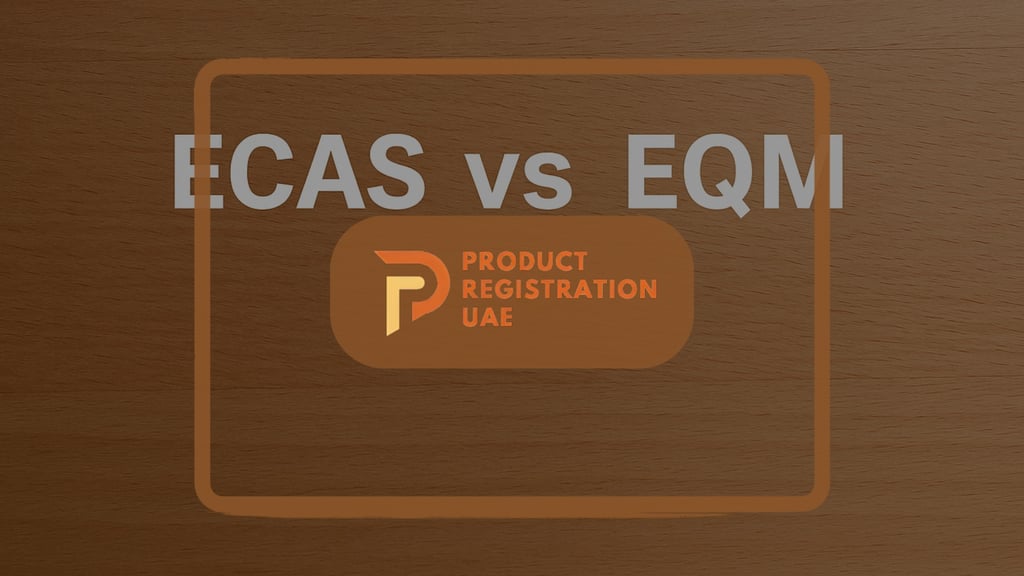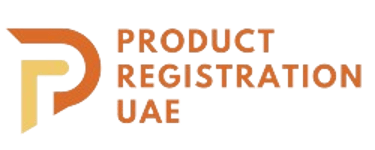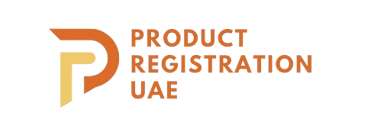ECAS vs EQM Costs, Risks & More
ECAS vs EQM in the UAE explained: costs, timelines, pitfalls, and expert guidance to choose the right certification for faster market approval.


ECAS vs EQM in the UAE (2025):
Which Certification Do You Need? Costs, Timelines & Common Pitfalls
Understanding ECAS and EQM
The UAE requires all regulated products to meet either ECAS (Emirates Conformity Assessment Scheme) or EQM (Emirates Quality Mark) certification.
Choosing the right scheme is critical, as the wrong route can lead to delays, rejections, or even market recalls.
So — how do you know which one applies to your product?
When ECAS vs When EQM
ECAS:
Covers a wide range of product categories (cosmetics, health supplements, low-risk electricals, detergents, toys).
Usually requires conformity assessment through test reports from accredited labs.
More cost-effective and faster if reports are valid and standards are clear.
EQM:
Needed for higher-assurance categories (milk powder, bottled water, infant food, high-risk electricals, building materials).
Involves a factory audit and continuous surveillance, plus mark usage on packaging.
Demonstrates stronger quality assurance and long-term compliance.
Quick Decision Tree
Product risk level → High vs low?
Mandatory UAE/GSO standard → Does it trigger EQM?
Scheme requirement → Is an audit required?
Evidence needed → Test reports, labels, factory quality system?
If unclear, borderline products (detergents, toys, electricals) are often assessed case by case. Our team maps these decisions early to avoid surprises.
Costs & Timelines
ECAS:
Application & evaluation: typically AED 2,500–6,000.
Lead time: 4–8 weeks (if reports are valid).
EQM:
Audit + mark licensing: AED 18,000–35,000+.
Lead time: 3–6 months depending on factory readiness.
Where overruns happen: expired test reports, missing Arabic labels, factory non-conformance, or slow clarifications with ESMA.
Hidden costs to watch: technical translation, re-testing if reports are not recognized, and ongoing surveillance fees for EQM. Factoring these in upfront prevents budget shocks later.
5 Common Rejection Reasons
Wrong scheme selection (applying EQM when ECAS suffices, or vice versa).
Expired or non-accredited test reports.
Missing or incorrect Arabic label content.
Improper use of the UAE Quality Mark.
Incomplete dossiers or missing manufacturer signatures.
How Our Service De-Risks Approval
We reduce uncertainty by:
Pre-screening product standards and mapping the right scheme.
Building a compliant test plan with accredited labs.
Preparing dossiers, validating labels, and ensuring Arabic content accuracy.
Coaching factories for EQM audits and resolving non-conformities.
Advocating with regulators if cases get stuck.
Case in point: a detergent importer recently attempted EQM when ECAS sufficed.
Their application stalled for months.
After reassessment, we redirected them to ECAS with correct test reports and approval was secured in weeks. This is why scheme clarity from the start matters.
This way, your products reach UAE shelves faster, with fewer risks.
FAQs on ECAS vs EQM
Do SMEs need EQM or is ECAS enough?
Most SMEs can comply through ECAS, but high-risk products still require EQM regardless of company size.
Can foreign test reports be used for ECAS?
Yes, but only if issued by an ISO/IEC 17025 accredited lab recognized by ESMA. Otherwise, retesting in UAE-approved labs is mandatory.
What happens if I apply for the wrong scheme?
Applications may be rejected, and fees are rarely refundable. Choosing the right scheme from the start saves both time and money.
Is EQM a one-time approval?
No. EQM includes ongoing surveillance audits and renewal fees, ensuring continuous compliance.
Final Word
Choosing between ECAS and EQM isn’t just paperwork — it’s about protecting your business from delays, rejections, and compliance penalties.
Beyond certification, it directly impacts how quickly your product enters the UAE market and how confidently retailers and regulators view your brand.
With expert guidance, the right route becomes clear, costs predictable, and approvals achievable.
Contact us or use the chatbot to discuss your product’s requirements today.
Related Blogs
Understanding UAE’s Product Recall Process: Compliance & Risk Management
Why Early Regulatory Intelligence Matters for Product Registration in the UAE
The Role of GMP in UAE Health Supplement Approval
Learn why stability testing is essential for shelf-life approval.


